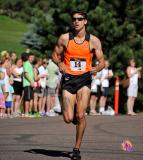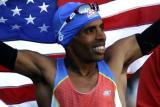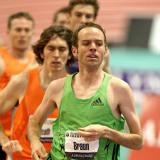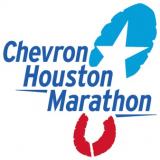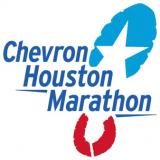Folders |
Catching Up with Houston Marathon Director Brant KotchPublished by
If you haven't noticed, the Chevron Houston Marathon and Half-Marathon has grown in to one of the premier road races in the United States over the past few years. Winning the bid to host the 2012 U.S. Olympic Marathon Trials, the Houston Marathon not only exceeded expectations, but pushed itself into elite status on a global stage. In 2013, the event is again taking a big step forward, bringing in a strong field of professional athletes for both the marathon and half-marathon events, while offering an enormous prize purse of $264,500. We caught up with event president and race director Brant Kotch earlier this week, as he and his staff prepare for both events this coming Sunday. Kotch discussed this weekend's festivities, the evolution of the event and much more. Scott Bush (SB): With only a few more days until the 2013 Houston Marathon and Half Marathon, how are things shaping up for you and the rest of your team? Brant Kotch (BK): It’s shaping up quite well. We’ve got some really nice elite fields with more depth than we’ve had in the past, the most notable of which is a men’s half field that is gunning for a $50,000 WR bonus. With our CR less than a minute off the WR and our CR-holder (Feyisa Lilesa) returning and having the slowest PR of our four top-tier names, we are encouraged. But the reality, of course, is that WRs are anything but easy to come by and totally impossible to predict. Operationally, our team is better than ever: we’re up to 11 full-time staffers and I think they would all agree with me that the attitude in the office has been very conducive to lots of hard work that we hope will translate into a smoothly-run event. SB: The Chevron Houston Marathon & Half-Marathon has grown tremendously, both in size and prestige over the past few years. What type of steps have you taken as president of the event to help it evolve into one of the top marathons and half-marathons in the world? BK: To a large degree, I’m a cheerleader. I love the event, and I try to impart that love/passion to everyone, volunteer and staffer alike, that works for us. We have always tried to balance our attention among all different levels of runners, from elites to good age-groupers, from mid-packers to back-of-the-packers. I like to call our weekend a “boutique” event, in that we aren’t trying to be the biggest but we are trying to provide everyone who participates in our races the very best possible experience. The framework was always there, thanks to my predecessors, but we are always tweaking and hopefully improving on the basic product. SB: You have a sizable prize purse this year, offering more than $250,000 to athletes. How has this changed the fields this year compared to years past? BK: That is a trend that I hope we can continue. Our Board resolved last spring to raise our profile internationally: in the scheme of worldwide marathons, I see us currently positioned below the Marathon Majors and certain of the big European marathons, such as Frankfurt, Paris and Rotterdam. A big part of raising our profile has been increasing our purses and attracting more elite talent. The result has been, as I mentioned earlier, increased depth with the hope that a strong pack of frontrunners can maintain a good pace that will bring the best of them home in a really good time. More than that, though, I’d like to see good competition up front. The later the final breaks come, the better (if they come at all!). SB: There is a strong contingent of American athletes, especially in the half-marathon? How much emphasis is placed on recruiting in some of the best distance runners in the U.S.? BK: We care deeply about supporting U.S. athletes, as evidenced by our support of the USA Distance Project and specific national-caliber training groups, and our close work with USATF on national events such as the Half Marathon Championships and the recent Olympic Trials Marathons. We are always trying to get the best Americans we can, but our position on the calendar sometimes poses a problem in that they seem to fashion their racing schedule around spring and fall marathons. I think that’s one reason why we’re seeing more involvement in the half, and why the Half-Marathon Championships were such a big hit. SB: In 2012, your organization hosted the U.S. Olympic Marathon Trials. Looking back, how did that event go for you and how did it change (if any) the direction your event is taking moving forward? BK: I have hardly heard a word of criticism in the year since the event, so I guess that means we did all right. Seriously, though, I don’t think we could have done much of anything better. Even the weather was perfect, really for both days. The biggest influence that the Trials had on our events moving forward, though, was in showing us what was possible – the 22 months of planning there gave us plenty of time to make some really important upgrades and allowed us to broaden our sights to a full weekend of events. For this year, we have moved our 5K to Saturday and we have retained the festival in Discovery Green, the city park immediately adjacent to our finish line and the George R. Brown Convention Center. SB: What distinguishes your event compared to all of the other top marathons in the U.S.? BK: By far the biggest advantage we have is the aforesaid convention center and our compact event footprint, with the host hotel directly connected to it, the start lines 5-6 blocks away, the finish line right in front, and the city park just beyond it. We open the convention center at 5 am on race morning and allow people to warm up, check their extra clothes and even go to one of two church services that we provide, if they’re so inclined. They walk out to the start lines (hopefully a half-hour before the start), run their race, and then, when they finish, they walk right back inside and we serve them a hot breakfast. We can’t do anything about weather, but we can make it comfortable for our participants before and after their exposure to it. Guy Morse once said that our setup allows us to treat every runner like an elite. That has become our mantra. SB: Any thoughts to making a bid to join the World Marathon Majors? BK: As I said, I think we’re still a little way from even the tier immediately under the Marathon Majors. At least, that’s the way I want us to approach it. We want to stay hungry. SB: What are your expectations for the Chevron Marathon and Half-Marathon this coming weekend? BK: I’m very upbeat about next weekend. Our Trials experience has really helped us push through some major improvements and our team couldn’t be more unified in its effort to put on a great event. We’re very hopeful for good weather and good performances. That WR would be the pinnacle, but we’ll have a great event no matter what. It’s been a year in the making. More news |




